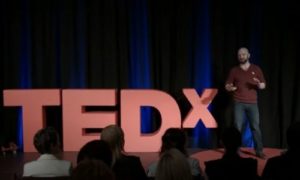Throughout our lives, we all experience situations that challenge us. When this happens, it’s natural for us to come face to face with fear, anxiety, and doubt.
But despite it being our natural tendency, more significant problems arise when we make decisions from a place of fear because fear brings out our worst selves.
Much of my work with clients is about creating structures and plans from our best selves so that when we are stressed and anxious, we can better trust our decisions because we know they don’t come from a place of fear or anxiety.
Let’s look at some examples.
Agreeing on a Prenup
A client came to me recently because he was looking to get married. He’d been married before, and it hadn’t worked out, so he wondered whether they should sign a prenup before he did it again.
So he asked around for advice.
Some people told him signing a prenup set the marriage up for failure. Other people thought he should 100% sign a prenup because it was the only way to protect himself.
But I had a different take when he brought this question to me.
I invited him to consider that a prenup is simply an agreement about how you want to handle the end of a relationship, made from the best versions of the two people involved.
When you’re about to get married, you’re totally in love. You’re excited about the future. And you’re primed to be generous, fair, and loving of your partner. But, if your marriage hits hard times, things might shift. One or both of you could be heartbroken or angry. Settling a complicated situation in this state could be challenging.
But if you created a clear prenup together while you were in that earlier phase of kindness, optimism, and generosity, then you can feel comfortable knowing that the person who decided how this would go was a version of you who showed up from love.
My client loved this distinction, and he successfully brought it to his partner so that they could have a rich and loving conversation as a result.
Trusting Your Decisions Come From the Right Place
This client got me thinking about how we, as coaches, do this in our coaching relationships. We create agreements with our clients when we are our best selves so that when we aren’t feeling it, we can trust the decisions we made before because we know they came from a grounded and wise place.
This is why making agreements and thinking about breakdowns are pivotal to excellent leadership and coaching.
How to Make Decisions From Your Best Self
If you want to do this yourself, here’s how to get started.
First, you have to identify a situation in which the outcome is uncertain.
For example, you’re committing to a business partnership with someone new. You hope things go well, but it’s worth considering that they might not. So instead of getting caught up in fear, just consider how things might go wrong and what feelings might result from those failures.
Then consider, if I was my best self that day, how would I want to handle it? What are the rules, agreements, and boundaries I could put in place right now that would support me in showing up in those ways, even during the most challenging moments?
Just by asking these questions, you can create some clear agreements for handling various situations down the line if things don’t work out.
The Veil of Ignorance
There’s a great philosophical principle called the veil of ignorance. The main idea of this principle is that the best laws are made by someone who will be born in a society but who doesn’t know who they will be when they are born. They don’t know where they’ll be born, who they’ll be born to, what they’ll look like, or anything else that could impact how their life turns out.
The theory goes that this person would be the best person to decide what laws and policies should exist because they would be sitting behind a veil of ignorance. They would never make decisions that benefit one group over another too much because they don’t know how things will turn out.
By putting yourself behind the veil of ignorance surrounding future relationship breakdowns, you set yourself up for success because you can choose to make agreements that help handle things if they go wrong.
You can make an agreement to show up from your best self in a situation that you know will be challenging when it does arrive.
Questions to Consider in Making Decisions From Your Best Self
As a coach, you should be considering the following as you work to create agreements for an uncertain future:
- How do you want to handle it if your client wants to quit?
- How do you want to handle it if you go into business with someone where the partnership doesn’t work out?
- How do you want to handle it if a program you are launching doesn’t fill in how you want it to?
- How do you want to handle it when you commit to doing something that isn’t working for you anymore?
- How do you want to handle it if you are dating someone and you realize you don’t want to date each other anymore?
- How do you want to handle it if you join a program and what you are getting is not a good fit for you?
Thinking through all these things in advance, and putting in the effort to create agreements from your best self before you need them, will set you up for long-term success.


